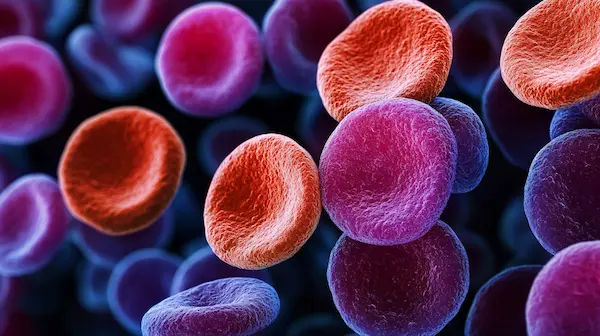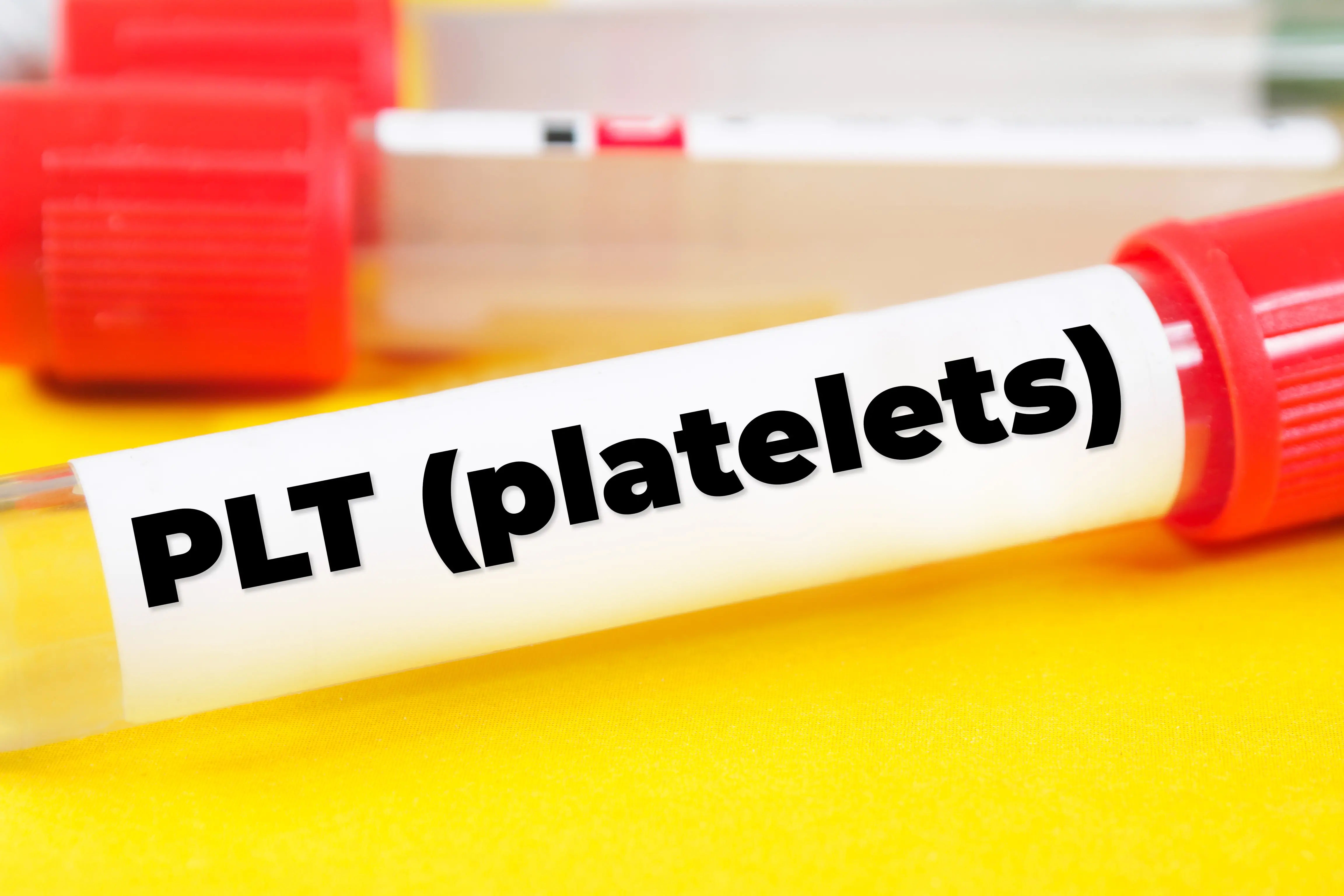Unusual Bruising
Noticing frequent or unexplained bruising? Discover the key lab tests—CBC, Platelet Count, and Clotting Profile—that can help identify the root cause and guide timely treatment.

Written by
Last updated on 14th Jul, 2025

Unusual Bruising? These Lab Tests Can Help Diagnose Why
If you've noticed bruises appearing on your body without a clear memory of an injury, or if they seem unusually large, frequent, or take a long time to heal, you might be wondering why. While a bump or fall often leads to a visible bruise, unusual bruising can be a puzzling and sometimes concerning symptom for all adults. It can leave you feeling worried and unsure about your health.
While minor bruising is a normal part of life, persistent, unexplained, or severe bruising could be your body's way of signalling a more serious underlying health issue. Ignoring it or assuming it's just due to clumsiness might prevent you from discovering and treating a treatable condition affecting your blood or blood vessels. Fortunately, specific lab tests can offer crucial insights, helping your doctor understand what might be causing your bruising and guiding you toward an accurate diagnosis and an effective solution for peace of mind. This guide will explore the various lab tests that can help identify the triggers behind your unusual bruising.
What Causes Unusual Bruising
A bruise (contusion) forms when small blood vessels under the skin break, often due to an injury, allowing blood to leak into surrounding tissues. This trapped blood causes the characteristic blue-black, purple, or greenish discolouration before it eventually fades.
Common reasons for mild, typical bruising include:
- Minor Bumps and Falls: Everyday activities can lead to slight trauma that you might not remember.
- Ageing Skin: As we age, our skin becomes thinner and blood vessels more fragile, making bruising more common.
- Certain Medications: Blood thinners (anticoagulants), aspirin, NSAIDs (like ibuprofen), and corticosteroids can increase bruising tendencies.
- Vigorous Exercise: Strenuous workouts can sometimes cause tiny blood vessel ruptures.
- Sun Damage: Long-term sun exposure can weaken blood vessel walls.
While these are common explanations, when bruising becomes unusual in terms of frequency, size, location (e.g., bruising without obvious injury), or healing time, it's crucial to investigate further. In such cases, blood tests can provide critical insights into internal imbalances, particularly those affecting blood clotting or platelet function, that might be contributing to the problem.
When to Consider Lab Tests for Unusual Bruising
If your bruising is more than just an occasional occurrence, especially if it affects your daily life or comes with other symptoms, it's time to talk to your doctor about lab tests. Consider these tests if you experience:
- Bruises without clear injury: If you find bruises and cannot recall how you got them.
- Frequent or large bruises: If you bruise very easily, or your bruises are unusually large.
- Bruises in unusual locations: Such as your torso, back, or face (when not due to trauma).
- Bruises accompanied by other bleeding: Like frequent nosebleeds, bleeding gums, heavy menstrual bleeding, or blood in urine/stool.
- Slow-healing bruises: If bruises take an unusually long time to fade (weeks or months).
- Family History: If there's a family history of bleeding disorders.
Accompanied by other symptoms: If you also notice:
- Unexplained fatigue or weakness.
- Sudden weight loss.
- Fever or night sweats.
- Enlarged lymph nodes.
- Pale skin.
If any of these sound familiar, discussing specific blood tests with your doctor can help pinpoint the exactunderlying cause and lead to a more effective, personalised treatment plan for your health.
Key Lab Tests to Help Diagnose the Cause of Unusual Bruising
When unusual bruising is a concern, specific blood tests are crucial. They help your doctor investigate common underlying issues related to your blood's ability to clot, the number of platelets you have, and your overall blood cell health. These tests offer vital clues to understand what's causing your bruising.
Complete Blood Count (CBC)
- What it measures: A CBC is a broad blood test that provides a detailed overview of your red blood cells, white blood cells, and platelets.
- Why it’s important: This test helps detect conditions like anaemia (low red blood cell count), infections, or certain blood cancers that can affect your body's ability to stop bleeding. Crucially, it directly checks your platelet count. Platelets are tiny blood cells that form the first plug to stop bleeding. If your platelet count is too low (thrombocytopenia), you can bruise and bleed very easily.
Schedule a Platelet Count Test
Platelet Count
- What it measures: This specific part of the CBC measures the exact number of platelets in a sample of your blood.
- Why it's important: As mentioned, platelets are vital for normal blood clotting. If your platelet count is significantly lower than normal, it is a direct cause of easy bruising and bleeding. Abnormally high counts can also sometimes lead to clotting issues, though low counts are more commonly associated with bruising.
Clotting Profile (Prothrombin Time [PT], Activated Partial Thromboplastin Time [aPTT], Fibrinogen)
- What they measure: These tests evaluate how quickly and effectively your blood forms a clot. They assess different parts of your body's complex clotting process, which involves many different proteins (clotting factors).
- Prothrombin Time (PT) and International Normalised Ratio (INR): Measures how long it takes for a specific part of your blood to clot. It often checks for deficiencies in certain clotting factors or the effect of blood-thinning medications.
- Activated Partial Thromboplastin Time (aPTT): Measures the time it takes for another part of your blood to clot. It screens for deficiencies in different clotting factors than the PT.
- Fibrinogen: This is a specific protein (clotting factor) that plays a central role in forming the final blood clot. The test measures its amount in your blood.
- Why they're important: Abnormal results in these tests can indicate various bleeding disorders, such as haemophilia, von Willebrand disease, or liver disease (which produces many clotting factors). They help determine if your body's clotting system is working correctly to prevent excessive bleeding and bruising.
The results from these specific lab tests, combined with your symptoms, medical history, and a thorough physical examination, will help your doctor accurately diagnose the underlying cause of your unusual bruising. This detailed understanding allows them to create a targeted treatment plan designed to bring you lasting peace of mind and improved health.
Get These Tests If You've Unusual Bruising
Get Tested Easily with Apollo 24|7
When your doctor recommends diagnostic tests to uncover the cause of your unusual bruising, choosing a trusted and convenient testing provider is paramount. Apollo 24|7 simplifies this process by offering a wide range of reliable lab tests. With accurate results delivered quickly, you and your doctor can work together to identify any underlying factors contributing to your bruising and plan the right path to improved health.
Here’s why choosing Apollo 24|7 for your bruising investigations is a smart step:
- Comprehensive Test Panels: Apollo 24|7 provides access to a range of diagnostic panels that help evaluate unexplained or frequent bruising. Key tests include a platelet count to assess blood clotting cells, a complete blood count (CBC) to check overall blood health, and a clotting profile to measure how effectively your blood forms clots and stops bleeding.
- NABL-Accredited Labs: Tests are conducted in high-quality labs certified by the National Accreditation Board for Testing and Calibration Laboratories (NABL), ensuring trusted accuracy and reliability for your results.
- Home Sample Collection: No need to travel; get blood samples collected conveniently from your home at a time that suits you, offering privacy and comfort.
- Easy Online Booking: Book your tests effortlessly through the user-friendly Apollo 24|7 app or website with just a few clicks.
- Fast Digital Reports: Receive secure, detailed reports swiftly online, delivered directly to your device, ready for your doctor to review.
- Trusted Brand: Benefit from the trusted expertise and healthcare legacy of Apollo Hospitals Group, one of India’s most respected medical networks.
By choosing Apollo 24|7, you gain access to high-quality, reliable, and convenient diagnostic services that can significantly streamline your journey towards understanding and effectively managing your unusual bruising.
Conclusion
Unusual bruising is more than just a cosmetic concern; it can be a critical signal that your body is dealing with underlying issues related to blood clotting, platelet function, or other health conditions that require attention. Relying solely on temporary explanations without understanding the root cause can prolong your worry and delay effective solutions.
Specific tests, including a Complete Blood Count (CBC) with Platelet Count and a comprehensive Clotting Profile, are invaluable tools. These tests help your doctor accurately identify what's contributing to your unusual bruising. Obtaining an accurate diagnosis is key to effective and lasting relief, allowing for a tailored plan that addresses the root cause, leading to greater peace of mind and improved overall health. If you struggle with unusual bruising, consult your doctor to explore if these tests can provide the answers you need.


